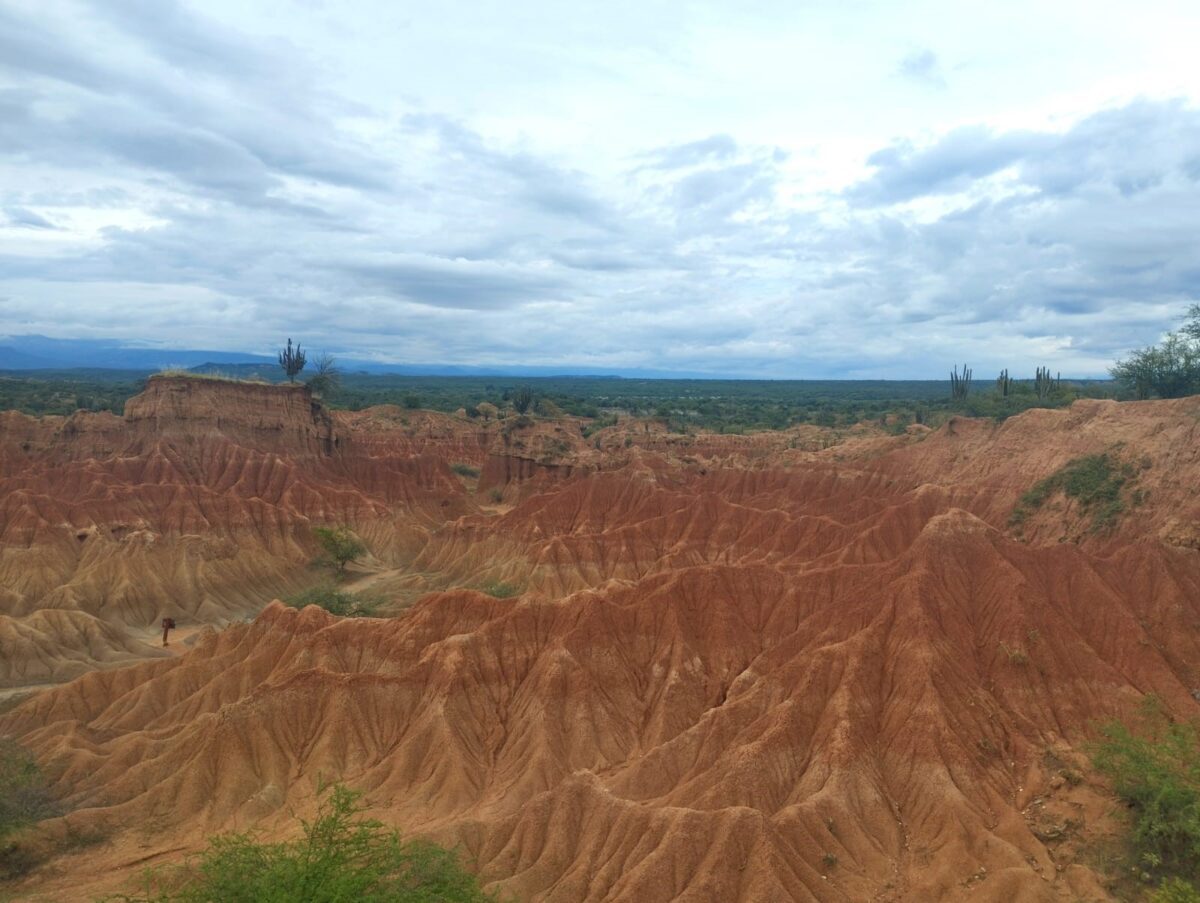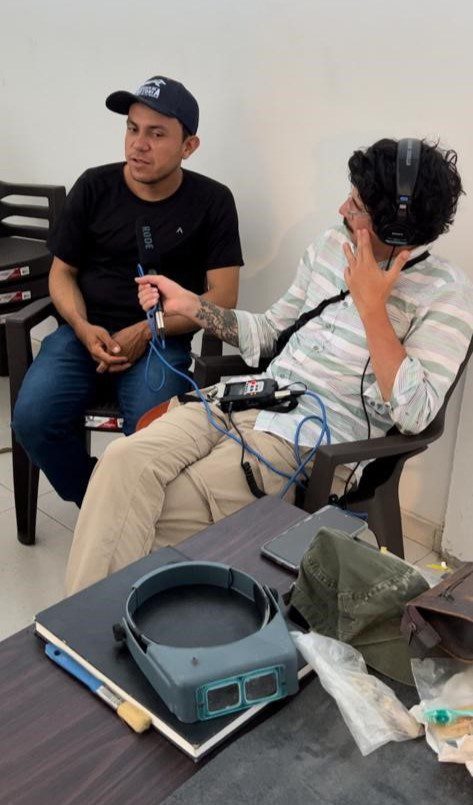By Efrain Rincon, Founder and Excutive Director of Shots de Ciencia

I am writing from the Tatacoa desert, in Huila, Colombia. This place, which is not really a desert but one of the last relicts of the tropical dry forest left in the country, is one of the greatest attractions for paleontological studies. Stepping on this land means traveling back to the times when dinosaurs walked this planet, or when the waters came into South America and formed a large ecosystem of lakes in what is now the Amazon of Peru, Brazil, Ecuador, and Colombia. I am talking between 23 and 5 million years ago. In 2023, La Tatacoa celebrates a 100-year history of paleontological research.

On this trip, I had the pleasure to interview Andrés Vanegas, Director of the La Tatacoa Museum of Natural History. Vanegas is a young fossil enthusiast, a passion he developed since he was eight years old, and is a resident of this region. A completely empirical paleontologist– one phrase stuck in my head: “Although we are celebrating 100 years, it was only in the last twenty that Colombian scientists began to investigate this area.” Before that, it was mostly foreigners who came to study fossils. According to Vanegas, people in town say that foreigners often took fossils out of the area by helicopter and that local people never saw them again.
While listening to Vanegas, I was transported back to the 12th World Conference on Science Journalism, held in Medellin, Colombia last March. During that meeting, one of the core messages shared by keynote speakers, which resonated throughout the conversations in the networking spaces, was the need to decolonize science and knowledge. This debate is gaining momentum in academia and, as science journalists, it affects us directly. Brigitte Baptiste, a trans woman, ecologist and dean of Ean University, believes this is about the need to avoid imposing narratives, especially on issues such as biodiversity and climate change.
As science journalists, we have the responsibility to tell scientific stories from a perspective of successes, eureka moments, and discoveries. However, I believe it is also our duty to expose, from a critical and objective point of view, the behind-the-scenes of science. Therefore, I think we need to approach science also with human and sociological perspectives. We must understand the power dynamics that drive science, and how these interact with different contexts (social, political, economic, ideological, etc), in a globalized world driven by a capitalist system.
It is also critical to rigorously cover structural inequities that especially involve segregated communities in science that include black, indigenous, women and LGBTIQ+ people. In one of the panels I attended on “Reporting on inequity in science from the Global South,” I shred my opinion about the fact that the English language and high publishing fees represent a barrier for scientists from the Global South. These realities are not necessarily covered in the media, and are often not accessible to the public.
The challenge is immense. However, the experience at the World Conference leaves me feeling encouraged and inspired. While sharing with journalists from the Global South, I realized that many of us are asking similar questions, and are actively searching for ways to address our common challenges.
I would like to thank Internews and the Health Journalism Network for this opportunity to attend the conference as a fellow. As a journalist and entrepreneur of an independent science media outlet, it was a valuable experience.